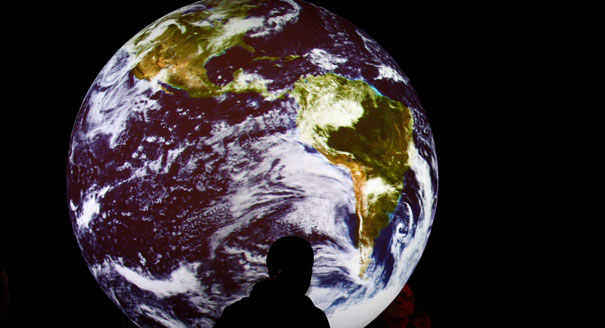Registration
You will receive an email confirming your registration.
We look forward to seeing invited attendees this Thursday, June 7th, at 2 PM, at the Carnegie Endowment for International Peace. Please note that due to a conflict, Michael Thompson will no longer be able to speak at the conference. We are excited to host Dr. David Morrow, of the Forum for Climate Engineering Assessment instead.
By 2040, current policy priorities will be ill-suited to address the widespread deployment of advanced artificial intelligence, climate upheaval, and worsening material inequality. Although there is already a debate among policymakers, academics, and journalists on what future trends and policy priorities require attention, it is the next generation of policymakers that will need to develop responses and solutions for this new world. The aim of this conference is to engage the next generation of policymakers in a discussion on how to prepare for these future challenges.
Following a keynote with Dr. Suzanne Fry of the National Intelligence Council and a question and answer session, the conference will host three discussion sessions on issues and policy areas that are experiencing significant change. Each session will feature a speaker who will present on long-term trends on the topic and reflect on the priorities that should guide policy planning for the long-term trends. A moderator will facilitate discussion among the session’s 25 participants on how the millennial generation can prepare. At the conclusion of the sessions, the conference participants will gather in full for a moderated panel discussion featuring the three session speakers. We aim to take up the National Intelligence Council’s suggestion that preparing for the future requires “reaching out not just to experts and government officials but also to students, women’s groups, entrepreneurs, transparency advocates, and beyond.”
Agenda
2:00-3:00 p.m.
Introduction
- Opening remarks and moderator: Salman Ahmed, Senior Fellow, Geoeconomics and Strategy Program, Carnegie Endowment for International Peace
- Keynote: Suzanne Fry, Director, Strategic Futures Group, National Intelligence Council
3:00-4:15 p.m.
Breakout Discussion Sessions
AI: Competition or Cooperation
Artificial intelligence (AI) will become a new competitive arena between great powers in the next decade. How can AI become a potential site of international cooperation, as opposed to competition?
- Speaker: Elsa Kania, Adjunct Fellow, Technology and National Security Program, Center for New American Security
- Moderator: Katherine Charlet, Director, Technology and International Affairs Program, Carnegie Endowment for International Peace
Climate engineering governance
The National Intelligence Council's 2017 Global Trends report speculates that countries may engage in unilateral climate engineering (CE), such as pumping sulfate aerosols into the air to mitigate the effects of a warming atmosphere. What would climate engineering policy look like that addresses the breadth of CE risks while maximizing opportunities to fight climate change?
- Speaker: David Morrow, Faculty Fellow, Forum for Climate Engineering Assessment
- Moderator: Jessica Leung, Solutions Fellow, Center for Climate and Energy Solutions
Democracy, inequality, and governance
Income/wealth inequality is expected to intensify in virtually all developed democracies, while states’ ability to regulate their own economies is limited by globalization, transnational agreements, and increasingly mobile capital. In light of this, how should democratic states respond to income/wealth inequality?
- Speaker: Makada Henry-Nickie, David M. Rubenstein Fellow in Governance Studies, Brookings Institution
- Moderator: Saskia Brechenmacher, Associate Fellow, Democracy and Rule of Law program, Carnegie Endowment for International Peace
4:15-5:00 p.m.
Concluding Panel
- Elsa Kania
- David Morrow
- Makada Henry-Nickie
- Moderator: Thomas Carothers, Senior Vice President for Studies, Carnegie Endowment for International Peace
5:00-6:00 p.m.
Reception and Closing Remarks
